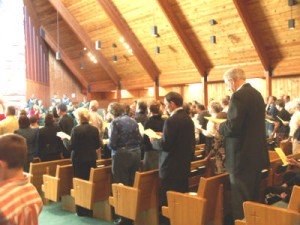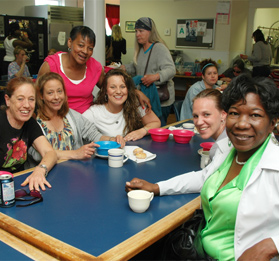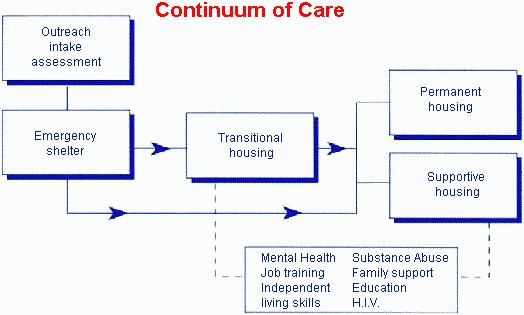Helping Recovering Addicts Reconnect With the Church
Over twenty years ago, Rev. Maurice Vanderberg, Executive Director of City Union Mission in Kansas City, hung the purpose of their new Christian Life Program on their chapel wall. It is a statement that should describe the intent of all rescue mission recovery programs:
Our goal is to see every man becomes a mature, contributing member of a Christian community.

People become homeless because they are disconnected from meaningful relationships with others. They don’t know how to access social support systems. And, for most, their trust level is at about zero. As they complete our residential recovery programs, we must assist them to become “plugged-in” to places where they will experience the support, nurture, and encouragement they need to grow in faith and in sobriety.
Becoming active in a church home is absolutely essential for homeless addicts who want to establish themselves in a new, independent, sober and godly lifestyle. They must develop a personal system of ongoing support that replaces the structure provided by the mission residential program. This might also include participation in support groups and finding a program sponsor. All of this can only be accomplished if we have a definite “aftercare” strategy in place.
Helping Recovering Addicts Reconnect With the Church Read More »








 Many people still think of rescue missions as places where homeless people find housing, food and spiritual instruction. Yet, those of us who are involved in this field know that unless their deeper spiritual, emotional, physical, and social needs are addressed, homeless people will never attain stability in their lives. Many suffer from mental illness, addiction to alcohol and/or drugs, and various medical problems. Some cannot read, lack high school diplomas, and do not possess basic skills needed to find and keep a job. These and other complex problems keep people on the streets.
Many people still think of rescue missions as places where homeless people find housing, food and spiritual instruction. Yet, those of us who are involved in this field know that unless their deeper spiritual, emotional, physical, and social needs are addressed, homeless people will never attain stability in their lives. Many suffer from mental illness, addiction to alcohol and/or drugs, and various medical problems. Some cannot read, lack high school diplomas, and do not possess basic skills needed to find and keep a job. These and other complex problems keep people on the streets.